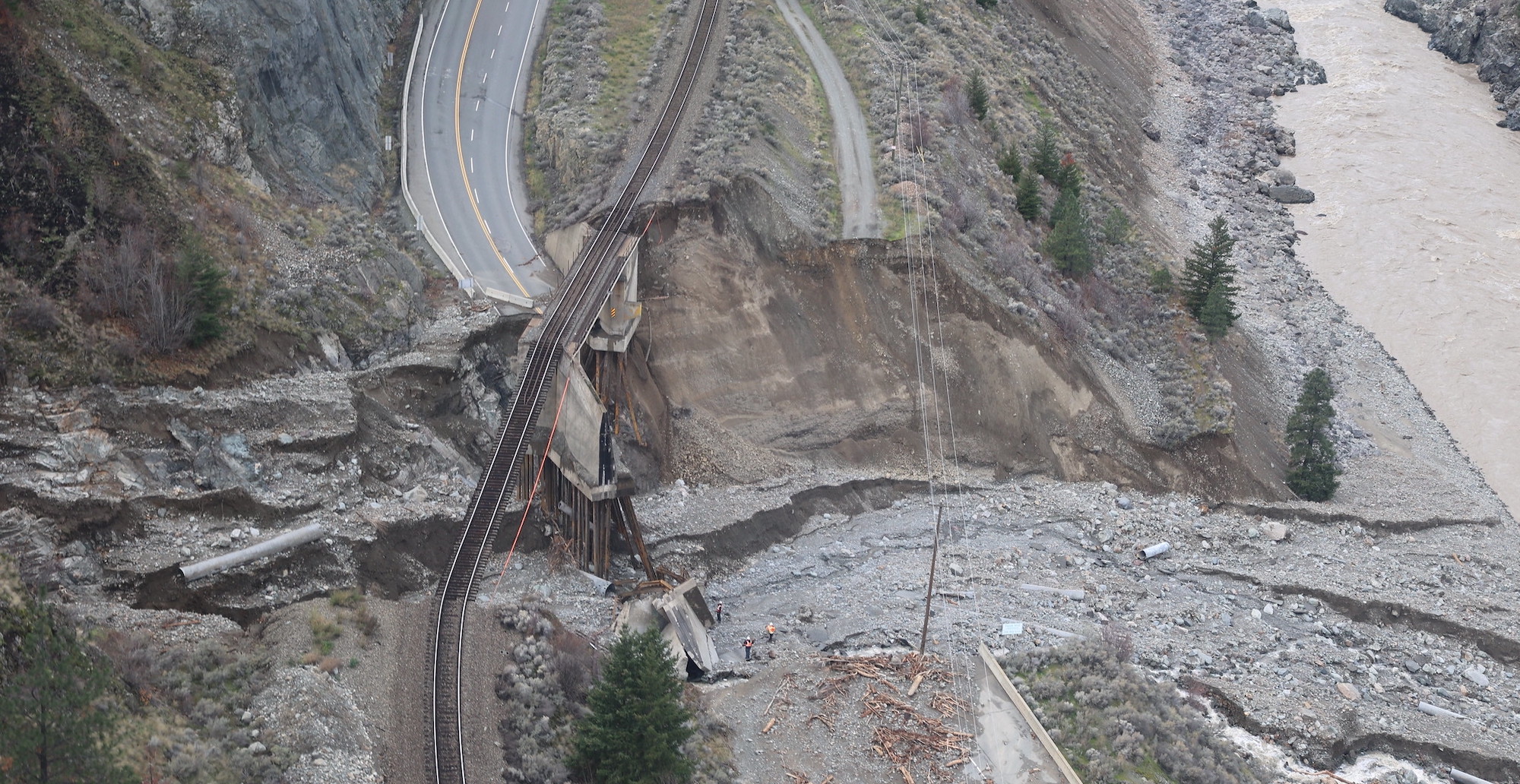A mudslide destroyed a portion of the Tank Hill underpass on Highway 1 in southern British Columbia following record-breaking rainfall in November. Photo by the B.C. Ministry of Transportation and Infrastructure on Flickr, CC BY-NC-ND 2.0.
As southern British Columbia starts to rebuild following devastating floods, the provincial government faces a serious question: does the cost of adaptation inaction outweigh that of taking bold action to boost resiliency?
The Globe and Mail reports the floods will be Canada’s most expensive natural disaster (paywall) of 2021. That’s saying a lot after a summer of deadly wildfires that destroyed the town of Lytton, B.C. and wiped out 70 percent of the B.C. Fire Service’s budget before the start of peak fire season.
In the wake of the November floods, B.C. officials are looking into rebuilding destroyed or severely damaged roadways to be more resilient in addition to retrofitting existing highways, according to a recent Reuters report. Some of the proposed improvements would include widening culverts, elongating bridges and constructing roads in areas less prone to mudslides.
Record-breaking rainfall caused major flooding and mudslides throughout November, destroying roads, submerging the Trans Canada highway and cutting off Vancouver from the rest of the country by road. At least four people have died as well as thousands of farm animals, and over 18,000 people had to be evacuated.
Canada’s federal government has made past investments in boosting the country’s climate resilience, and British Columbia already has laws in place requiring engineers to design roads with climate risks in mind. However, many of the province’s roadways were built before this legislation existed, putting them at higher risk of damages from extreme weather events accelerated by global heating.


Comment